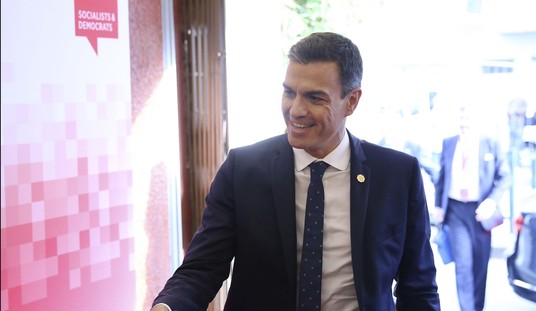Most of you likely remember when Donald Trump moved the United States embassy in Israel from Tel Aviv to Jerusalem. It created quite the stir, both inside the United States and internationally, with most conservatives seeing it as one of the strongest statements made by the United States in support of our staunch ally in the modern era. Following Trump’s lead, some of our allies took the same step, though most did it in a more symbolic fashion, officially “recognizing” Jerusalem as the capital while physically leaving their embassies in their original location. Among the countries in that category was Australia. That situation changed this week when the Australian government reversed course and said that they would once again recognize Tel Aviv as the capital. So what’s going on here? (Politico)
Australia has reversed a previous government’s recognition of West Jerusalem as Israel’s capital, the foreign minister said Tuesday.
The center-left Labor Party government Cabinet agreed to again recognize Tel Aviv as the capital and reaffirmed that Jerusalem’s status must be resolved in peace negotiations between Israel and the Palestinians, Foreign Minister Penny Wong said.
Australia remained committed to a two-party solution to the conflict between Israelis and Palestinians, and “we will not support an approach that undermines this prospect,” Wong said.
The solution to this mystery can be found in two names: Scott Morrison and Anthony Albanese. Morrison was the Conservative Party Prime Minister who was in office and a close ally of Donald Trump’s in 2018 when the original change was announced. The two were ideologically close and both were unwavering supporters of Israel. It was therefore not surprising that Morrison would recognize West Jerusalem as Israel’s capital after Trump did.
Anthony Albanese is the new Prime Minister, installed earlier this year. He’s from the Labour Party (the equivalent of the Democrats in the United States) and prefers to take a more hands-off approach to Israel’s situation. He favors a “two-state solution” to the disputes between Israel and the Palestinians. In announcing the change he said that leaving Jerusalem as the recognized capital “undermines” the two-state approach. (Whatever that means.)
This reversal is likely to be little more than symbolic in nature since it’s unlikely that any significant changes to trade or diplomatic agreements between Israel and Australia will follow. But it does speak to a larger shift in alliances in terms of mutual trust and goals. Trump’s goal, as with that of most conservatives, was to ensure the continued safety and existence of the Jewish state in the midst of a sea of enemies. Some of the regional tensions were eased a bit during that period, but the attacks on Israel by the Palestinians never really stopped.
The leftist view embraced by Albanese and the Labour Party (as with many Democrats in the United States) treats Israel with suspicion at best and focuses on the establishment of a Palestinian state, pretending as if such a development would suddenly end the violence. That seems to be the message being put forward by Australia’s current leadership. It’s disappointing to say the least.








Join the conversation as a VIP Member